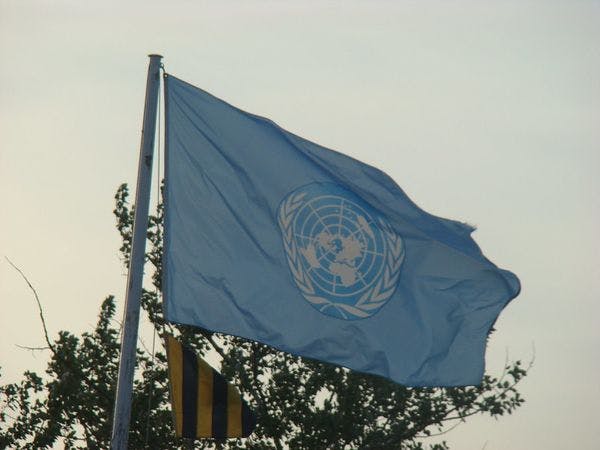Neubie - Flickr - CC BY 2.0 DEED
Les experts des Nations unies appellent à l'abolition universelle de la peine de mort
La déclaration souligne que les États qui maintiennent la peine de mort pour des infractions liées aux drogues contreviennent sans équivoque au droit international. Pour en savoir plus, en anglais, veuillez lire les informations ci-dessous.
GENEVA (9 October 2023) – The UN Special Rapporteur on extra-judicial, summary or arbitrary executions, Morris Tidball-Binz, and the UN Special Rapporteur on Torture and other Cruel, Inhuman or Degrading Treatment or Punishment, Alice Jill Edwards, reiterated their call for the complete abolition of the death penalty. Ahead of the 21st World Day Against the Death Penalty, they issued the following statement:
“Although international law permits the death penalty in very limited circumstances, in practice it is almost impossible for States to impose the death penalty while complying with human rights obligations, including the absolute and universal prohibition of torture.
As a forensic doctor and a lawyer respectively, we have observed that the severe suffering and pain inflicted on a person, from sentencing to death, up until his or her execution has been increasingly found to be incompatible with the obligations to refrain from torture and ill-treatment.
Despite progress towards abolition, at least 825 people were executed worldwide in 2022. This number is higher since a few countries do not publish statistics on executions while some even consider statistics on the death penalty as a State secret and criminalise their publication.
The international standard is clear: the death penalty must be restricted to the ‘most serious crimes’ defined as crimes of extreme gravity involving intentional killing. Of the countries that retain the death penalty under law, only two – Jamaica and Saint Vincent and the Grenadines – follow the standard.
In effect, a number of States continue to impose the death penalty in violation of their human rights obligations, including for crimes that do not result directly and intentionally in death, such as blasphemy, adultery and drug-related offences, which fail to meet the “most serious crime” standard for the application of capital punishment under international law. The imposition of the death penalty against persons exercising their right to peaceful political protest is a deeply worrying trend.
Abolition of the death penalty is the only viable path for States to fully respect the human rights of convicted persons.
We applaud the global movement towards complete abolition of the death penalty which was further bolstered this year with Zambia and Ghana abolishing the death penalty through legislative leadership. While complete abolition remains to be realised, Malaysia abolished the mandatory death penalty from its criminal law.
We call on all retentionist States to follow these examples and invite them to consider ratifying the Second Optional Protocol to the International Covenant on Civil and Political Rights (ICCPR) aimed at the abolition of the death penalty. The Protocol currently has 40 signatories and 90 States parties.
We also urge States that retain the death penalty to scrupulously apply exceptions for pregnant women and crimes committed by children and persons with intellectual disabilities, as required by various instruments including ICCPR, article 6.”
*The experts: Morris Tidball-Binz, Special Rapporteur on extrajudicial, summary or arbitrary executions and Dr Alice Jill Edwards, Special Rapporteur on torture and other cruel, inhuman or degrading treatment or punishment
Special Rapporteurs are part of what is known as the Special Procedures of the Human Rights Council. Special Procedures, the largest body of independent experts in the UN Human Rights system, is the general name of the Council’s independent fact-finding and monitoring mechanisms that address either specific country situations or thematic issues in all parts of the world. Special Procedures experts work on a voluntary basis; they are not UN staff and do not receive a salary for their work. They are independent from any government or organization and serve in their individual capacity.
Régions
Profils associés
- UN Special Rapporteur on extra-judicial, summary or arbitrary executions
- UN Special Rapporteur on Torture and other Cruel, Inhuman or Degrading Treatment or Punishment
